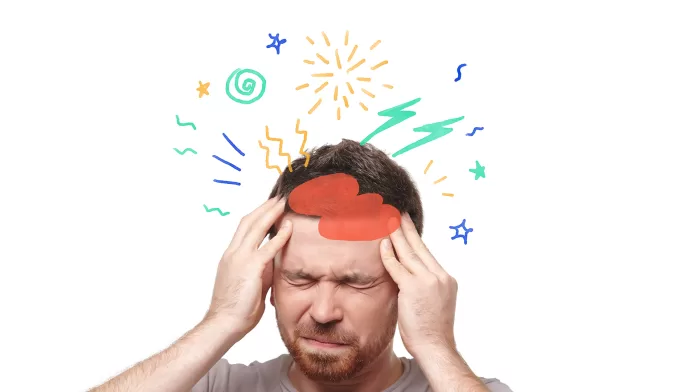Headaches are a common ailment that nearly everyone experiences at some point in their lives. While the discomfort might be universal, the causes and types of headaches vary significantly. In this blog post, we’ll delve deeper into the 11 types of headaches, providing insights into their characteristics, triggers, and effective treatment options.
1. Tension Headaches
Tension headaches are the most prevalent type of headaches, often described as a dull, aching sensation all over the head. They are frequently triggered by stress, poor posture, and strain on the neck and back. People may also experience tenderness in the scalp, neck, and shoulder muscles. Simple relief techniques include relaxation exercises, over-the-counter pain relievers, or hot/cold compresses.
2. Migraines
Migraines are much more severe than tension headaches and can last several hours to days. The pain is typically intense and pulsating, often accompanied by nausea, vomiting, and sensitivity to light and sound. Triggers can include hormonal changes, certain foods, stress, and environmental factors. Treatment may involve lifestyle modifications, analgesics, or prescription medications to help manage symptoms.
3. Cluster Headaches
Cluster headaches are among the most painful types of headaches. The intense pain is usually felt on one side of the head, often around the eye, and can lead to eye watering and nasal congestion on the affected side. These headaches occur in cycles or “clusters,” making them particularly distressing. Treatment often includes oxygen therapy and preventative medications prescribed by a healthcare professional.
4. Sinus Headaches
Sinus headaches occur due to inflammation in the sinuses, often resulting from allergies or infections. The pain is typically located in the forehead, cheeks, and nose, and can worsen with sudden movements. Treatment includes decongestants, nasal sprays, and sometimes antibiotics if a bacterial infection is present.
5. Hormone Headaches
Hormonal changes, particularly in women, can lead to hormone headaches, often correlated with menstrual cycles. These headaches can manifest as migraines or tension-like symptoms. Consult a healthcare provider for options such as hormone therapy or other medications to manage these types of headaches.
6. Caffeine Headaches
Caffeine can be a double-edged sword when it comes to headaches. While moderate caffeine intake can provide relief for some headache types, withdrawal from caffeine can trigger headaches as well. To manage caffeine-related headaches, gradually reduce your caffeine consumption rather than quitting abruptly.
7. Rebound Headaches
Rebound headaches occur when pain relief medications are taken too frequently. Over time, the body becomes reliant on these medications, leading to more consistent headaches. The best approach to combat rebound headaches is to detox under medical supervision, cutting back on medications judiciously.
8. Exertion Headaches
Exertion headaches happen during or after intense physical activity, such as running or weightlifting. This type of headache can often be prevented by staying hydrated and gradually increasing the intensity of workouts. Rest is also essential to minimize symptoms post-exercise.
9. Hypertension Headaches
Headaches related to high blood pressure (hypertension) may signal a need for immediate medical attention. These headaches can range from mild to severe and are often accompanied by other symptoms like chest pain or vision changes. Regular monitoring and medical management are critical for overall health.
10. Post-Traumatic Headaches
A post-traumatic headache is commonly experienced after a head injury, such as a concussion. Symptoms can mimic tension or migraine headaches and may persist long after the initial trauma. Consulting a healthcare provider is essential for creating the appropriate treatment plan to address these headaches.
11. Ice Cream Headaches
Also known as “brain freeze,” ice cream headaches occur when something cold hits the roof of your mouth, causing a quick, sharp pain. While generally temporary and harmless, the simple solution is to consume cold foods and drinks more slowly.
When to See a Doctor
While headaches are common, persistent or severe symptoms should never be ignored. It’s crucial to consult a healthcare professional if headaches become frequent, start suddenly, or significantly affect daily life. A proper assessment can help identify underlying issues and appropriate treatment plans.
Conclusion
Understanding the different types of headaches and their underlying causes can equip individuals with the knowledge to manage their symptoms effectively. Awareness fosters better health choices, leading to improved quality of life. For more health insights, tips, and guidance, keep following HealthFunda, and join our community committed to wellness.


